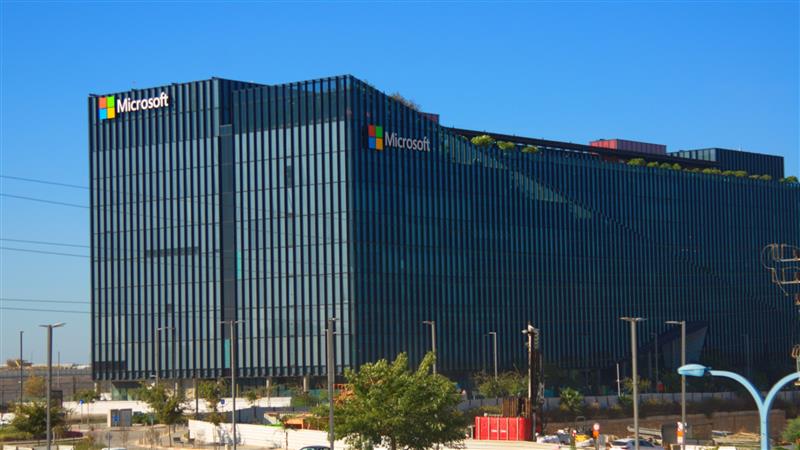
The world is looking at the Israel-Iran war as a mere battle for regional dominance. Beyond the missiles, in the past two days, the war’s real battleground became the Israel cyber hub, targeting Beersheba’s servers. The latest Iranian target was in very close perimeter to Microsoft’s AI lab.
Iran’s latest missile strike on Israel’s “Cyber Heart” is a new escalation in a new phase in the waged Middle East warfare. In less than 24 hours, Iran targeted and destroyed server rooms that matter as much as bunkers, to completely decapitate the IDF cybersecurity apparatus.
Each side has been exchanging missiles and drones in attacks, with Iran struck military facilities and Israel cyber networks and increased worries about broader conflict throughout the region.
Tehran’s 43% increase in cyberattacks is taking Tel Aviv off guard, despite the efforts from the 8200 cyber intelligence unit to security Israel’s digital borders, and infiltrate Iran’s cyber and intelligence infrastructure.
The latest aggression began when Israel struck Iranian targets linked to nuclear weapons development, which are Natanz Nuclear facility, Fordow Fuel Enrichment Plant, and Isfahan Nuclear Technology/Research Center. Iran, responded by striking Israeli military and intelligence targets.
One of the most obvious signs is Iran’s recent strike on Beersheba, the cyber capital of Israel cybersecurity operations. Missiles are now haunting Cyber Heart, hunting its tech startups. Friday morning, Israel’s cyber capital burned as Iran weaponized codes against the oppressor.
The war in the Middle East is no longer ideological or territorial; it’s now about who governs the high-tech systems that power both nations’ militaries, as seen in the Israel Iran cyberwar.
Beersheba, Israel’s Cyber Heart Struck
Iranian missiles struck the Gav-Yam Technology Park in Beersheba, home to Israel’s military intelligence and cybersecurity centers, hosting the Microsoft AI office. Beersheba is the center of Israel based cybersecurity companies.
Former Prime Minister Benjamin Netanyahu once called it “the central command center for defending the country against cyberattacks.” It houses Ben-Gurion University, Israel’s Cyber Emergency Response Team (CERT), and welcomes the expansion of the IDF cyber divisions.
Over 900 cyber soldiers are already trained there, and thousands were expected to join over the next two years.
In 2027, a new intelligence base is set to open its doors, just north of the city, to further endorse the Israel cyber capabilities, deemed by the Israeli government as the most solid pillar of national security.
The IDF relocated key techs and cyber units to Beersheba as part of its plan to consolidate military tech.
The Negev’s Cyber Heart houses the Cyber Directorate and the Command, Control, Communications, and Intelligence (C4I) Corps handling all AI, cyber defense, and intelligence systems. It also houses the Gavish Tech Campus behind the elite IDF cyber units, defense contractors, and academic military partners.
Given the increasing threat of Israel and Iran broaden cyberwar reported to have surged by over 40% recently, Beersheba plays a critical role in protecting Israel’s digital infrastructure and national security.
Israel’s cyber capital also hosts government and private sector collaborations, with most valuable one being Beersheba’s Advanced Technologies Park (ATP) housing multinational tech giants, from Dell, IBM, Elbit Systems, cybersecurity startups.
The hub also houses the Ben Gurion University known for its cybersecurity research for the Israeli government.
In 2023, during Microsoft in Israel welcomes the news of a $1 billion investment in the occupied territories, including a new AI and Cloud Innovation Center in Beersheba. Working closely with the IDF cybersecurity operations, the announcement was seen by many as a deeper Microsoft Israel support in predictive analytics, cyber threat detection, and autonomous systems.
Israel, Iran Expand Second Week of Warfare
The latest missile attack on Beersheba’s Gav-Yam Technology Park is turn of Middle Eastern cybersecurity dynamics. Historically, Israel has been a power to be reckoned with when it comes to cyberwarfare especially with its cyber unit 8200.
The Israeli government’s interception of Lebanese telecom communications, and the Hezbollah pager hacking incident, was dominantly conducted in the Beersheba.
But the recent Iranian missile attack on Beersheba, which is a center of Israel cybersecurity startups, such as its Cyber Emergency Response Team (CERT) and Ben-Gurion University, not only hit physical infrastructure but also symbolically disturbed Israel’s cyber superiority.
The world’s seeing Iran’s cyber capabilities take a different creation, with its increase in cyberattacks on Israel since 2023 being reported, the majority of which were attributed to Iranian and Hezbollah-sponsored entities.
Israel is developing a “Cyber Dome,” its cyber equivalent of its Iron Dome missile defense system, to counter the threats. Israel cyber attack on Iran and vice versa escalation means the Middle East is entering a new era of cyber war where technological dominance is challenged constantly.
Is Israel’s cyber dominance sustainable or is the power balance shifting in this front of cyber war?
Inside Telecom provides you with an extensive list of content covering all aspects of the tech industry. Keep an eye on our Tech sections to stay informed and up-to-date with our daily articles.